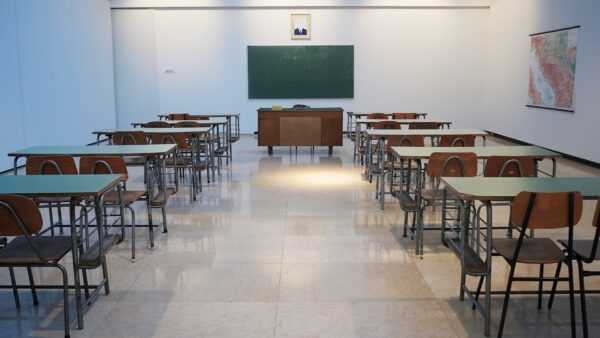Impact of Science and Technology on Society

Table of Contents
Impact of Science & Technology on Society
Impact of Science & Technology on Society Earth is at a crossroads. Present social science theory and public policy are not adequate to meet the multi-dimensional challenges posed by rising social aspirations, unemployment and inequality and inefficient patterns of production and consumption, globalization of markets, technological advances, demographic changes, and environmental limitations. Incremental improvements in public policy based around the present conceptual framework are only going to worsen issues that are already acute. At precisely the same period, the resources and capacities of global society haven’t been greater than they are now. Scientific knowledge, technological advancements, infrastructure, and productive capabilities, educated and skilled human resources, entrepreneurial abilities, commercial organization, and a fast-expanding worldwide social network offer unparalleled opportunities for rapid social progress. If you are looking for Jobs, have a look at Data Science Internship
Revolution of technology
Our issues arise in a mismatch between opportunities and resources: social science theory that’s divorced from real-world functioning, financial markets that siphon off funds from investment in the actual market, capital and technology-intensive manufacturing strategies that eliminate labor resulting in high levels of unemployment and decreasing consumer purchasing power, educational systems that neglect to impart the understanding and skills required by the labor economy, energy generation technologies which threaten the ecosystem, mispricing of natural resources leading to overexploitation and waste, domestic level associations incapable and unwilling of coping with global degree problems.
A solution can be found to every one of these problems if only we are willing to think beyond traditional boundaries. There is not any dearth of opportunity. The limits we face are limits in our thought. What’s needed would be to approach the challenges and the opportunities comprehensively and develop an integrated package of solutions. The notion of efficient market theory to maximize return to investors has to be substituted by a theoretical platform that maximizes the efficacy of society as a whole by the complete utilization of available social tools to improve consumer welfare and well-being.
This Forum seeks to formulate a comprehensive package of solutions to mobilize the enormous untapped potentials of human and social capital based on farsighted, ecologically sustainable economic policies; advanced delivery systems to get advanced schooling and vocational training; innovations in the use of science and technology; and new kinds of internet sites and industrial clusters; together with strategies to discharge and direct societal ambitions and energies into fresh fields of creativity.
- Human-centered Social Framework/Human Capital: This motif combines the focus on new economic theory and human capital with the role of innovation and entrepreneurship, placing them into a wider theoretical context. Individual Capital can be a central unifying theme of the Academy’s job in addition to a central strategy for breaking out of their thin conceptions and stifling economic policies that prevail now. The theme also is targeted at the catalytic role of the individual in societal influence, exemplified in the economy by the function of entrepreneurs. Additionally, it encompasses the problem of individual rights and financial rights, including the right to a job.
- The Network Society: This subject focuses on Social Capital and is a complement to this one on Individual Capital. The organization is just a determinant of social productivity and individual welfare. The subject here’s your creative function of the organization in social development, the enormous productive capacity generated by advances in societal organization, and the chances to work with innovative organizational units and delivery strategies to accelerate social advancement in business, education, scientific research, and governance. Conventional monetary theory and contemporary preoccupation with fiscal and monetary policy ignore the tremendous potential for organizational innovation for stimulation to societal change. A comprehensive strategy for fixing societal problems has to offer adequate prominence to this aspect.
- Economic theory and the real economy: The Newtonian view of economics, particularly, and social science generally dismisses significant theoretical advances in the sciences and critical areas of economic reality. This motif might actually encompass a vast array of issues linked to economic theory within an intellectually challenging manner which would comprise donations from non-economists.
- Re-valuing Nature: Current theories depending on the efficacy of markets overlook the gross inefficiency of financial systems that attempt to maximize return to investors by wastefully consuming natural resources or undervaluing and underutilizing human funding. Economic thought and training would be reoriented to take into consideration the real significance of natural and human resources to present and future generations and formulate effective public policies designed to optimize the efficiency of their overall social system. This theme must reevaluate the notion of financial significance and its function to promote sustainable individual wellbeing and wellbeing. The energy performs a central part in society’s relationship with the environment: this motif may also highlight the possibility of new and alternative energy sources.
- The International Workplace or Global Employment Challenge: Like climate change, the challenge is now worldwide and demands a broader comprehension of the various factors affecting job creation and retention, including trade, demography, aging, migration and technological development, tax policies, and Internet, worldwide sourcing, production strategies, outsourcing, and resource depletion, etc.. The thought of regional and global economies raised here has direct relevance to the EuroZone and EU.
- Understanding Talents and Genius — education for the 21st Century: A comprehensive social plan has to offer a central place to the part of education and training in preparing youth for productive engagement in a fast-changing and increasingly complex and complicated world. The net is set to become the principal delivery system for the expansion of the global educational platform to meet the rapidly expanding demands of growing countries. It also has an essential role to play in technical training to close down the gap between the demand and availability of expert individuals from the workforce. One of those challenges will be to prepare youth for entrepreneurship and self-employment.
- Sharing Knowledge, Innovation & Creativity for Human Welfare: This theme covers the broad subject of steps exactly to make available to industrial uses the existing large number of scientific knowledge and technological inventions. Particular emphasis will be given to the development of sustainable human wellbeing, for example, the area of medical care, which is one of the planet’s fastest-growing industries, accounting for more than ten percent of their economy in all nations. The general awareness is increasing with this topic, however, the management of S&T should create tools and a consensus to promote data sharing and economic manipulation in developing countries.
- Freedom and equality: That theme, that will handle the shortage of balance between developing and developed states, is extremely much in maintaining the programs of the International Higher Education and Research Centers operating in Trieste, often in close collaboration with UNESCO, like the International Centre for Theoretical Physics, that functioned the Forum.



